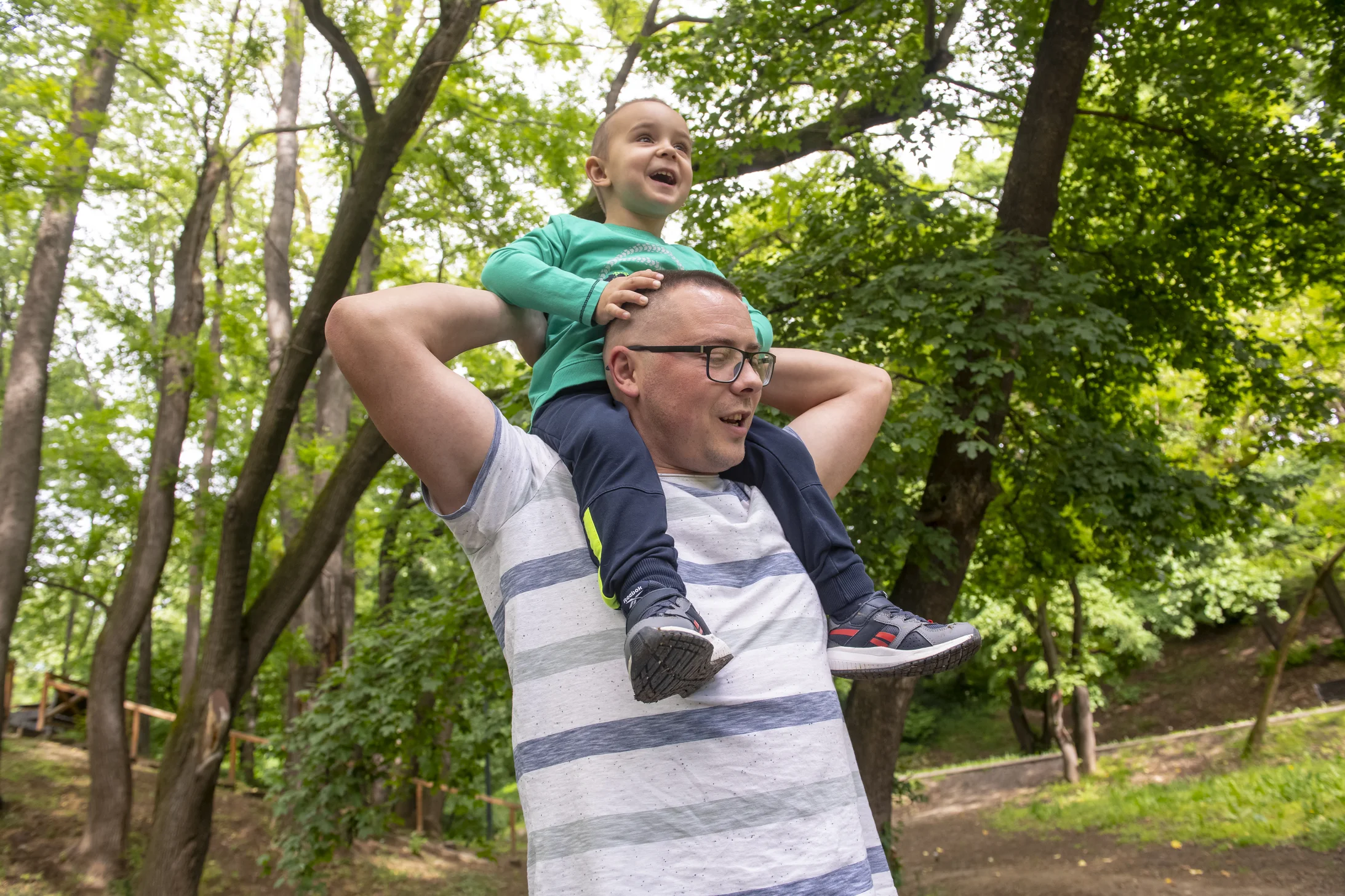Play enables children to learn about and understand their environment. They develop through play and acquire key motor, cognitive, social and emotional skills. But play is about much more than just early learning: It is also important for your child’s mental health. Read on to find out why playing is not only fun, but also good for your health.
1. Play strengthens the bond between you and your child
Shared moments of playing and learning help parents build a closer bond with their children. As their first playmate, you give your child the opportunity to learn and connect with their environment in their own home. Playing together enables you to see the world from your child’s perspective.
By offering them love, security and attention, you lay the foundations for the development of emotional and social skills that will help boost your child’s mental health and future wellbeing.
“Research shows that play protects children from the negative effects of prolonged exposure to stress.”
2. Play reduces stress levels
Playing, dancing and singing are great ways to reduce stress, both for your child and for yourself. When you play and laugh together, your body releases endorphins that improve your wellbeing.
Even brief moments of shared play can show adults how easy it is to support their children. It also allows you to forget about your work and other obligations.
Research shows that play protects children from the negative effects of prolonged exposure to stress. Long-lasting stressful situations can affect a child’s physical and mental health. Play and positive relationships with adults can mitigate these effects.
3. Play helps children process difficult emotions
When children are having to cope with complex emotional situations, this is often reflected in their play behavior. Giving children space to play helps them process feelings such as pain, fear or loss while still behaving like children.
Play gives children the opportunity to express things that they are struggling with and are not yet able to articulate. By repeating painful events in their games, they try to understand the effects of what happened on their environment and on themselves. If your child has experienced two adults arguing, for example, they may re-enact this conflict with dolls.
“Play gives children the opportunity to express things that they are struggling with and are not yet able to articulate.”
4. Play promotes self-confidence
The creative problem-solving that children engage in while playing gives them a sense of fulfillment and independence. So take the time to play with your child. That way they will understand that they are valued and that you enjoy spending time with them.
Give the game and your child your full attention. This kind of shared experience shows your child that they are loved and taken seriously, so smile, get involved and enjoy every moment.
Do you need mental health support? Or do you just want to learn more about the topic? Further information can be found here.
